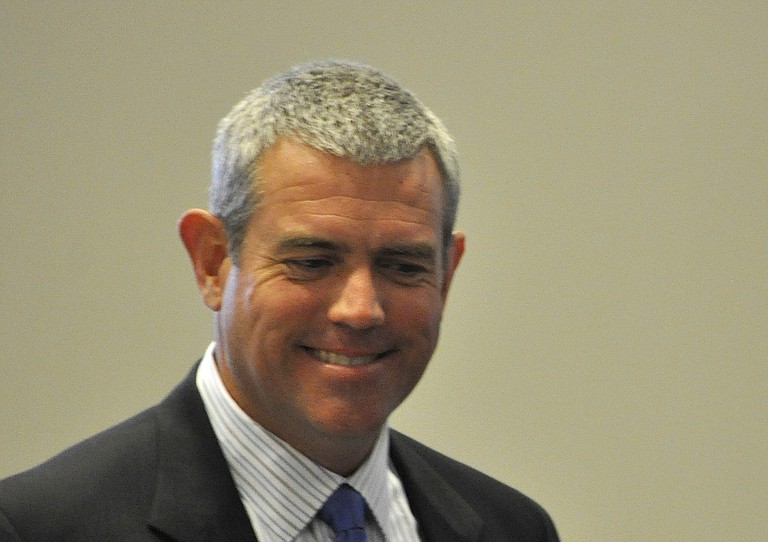House Speaker Philip Gunn and fellow Republicans' plan would increase spending on teacher pay statewide by about $180 million over four years. Photo by Trip Burns.
Tuesday, February 4, 2014
JACKSON, Miss. (AP) — House Speaker Philip Gunn and fellow Republicans want to give a $1,500 raise to most public school teachers in 2015 and 2016, and a projected raise of around $2,750 over the following two years, assuming state revenue continues to grow at a healthy rate.
The House Education Committee approved the plan Monday, with House Republicans joining Gunn shortly afterward to announce it in a news conference.
"If we're going to improve our education system, we have to invest in good teachers," said Gunn, a Clinton Republican. "This plan ensures our teachers receive the first fruits of economic growth. It will put over $180 million into teacher pay over the next four years."
Teachers in their first five years would get the raises automatically, while those with more than five years' experience would have to meet three of 22 criteria, ranging from certification by the National Board for Professional Teaching Standards to sponsoring a school club or serving on the education committee of a local civic club.
The total plan would increase spending on teacher pay statewide by about $180 million over four years. On Jan. 1, 2015, teachers would get a pay raise of $500 for the rest of that budget year, which works out to a $1,000 annual rate. On July 1, 2015, another $500 would kick in, bringing to total raise to $1,500 annually. In the 2016 and 2017 budget years, the total amount going to teacher pay would equal 1 percent of state revenue growth, as long as total revenue grew by 3 percent or more. That projects to $1,350 in 2016 and $1,400 in 2017.
Teachers would also get their yearly step raise of at least $495. Those with advanced degrees get larger annual raises.
Gov. Phil Bryant has softened his stance of only supporting increases for teachers who raise student performance. He said he's willing to work with House and Senate leaders.
"I believe that Mississippi's high-performing teachers should be rewarded for their efforts, and I am encouraged that this measure includes a few measurable benchmarks," Bryant said in a statement.
Lt. Gov Tate Reeves, a fellow Republican, said that the $180 million pledge "may not be prudent given the current state of the economy" and said he'd still like to see raises linked to test scores.
"I would very much prefer merit benchmarks focused on student achievement than on easily achievable benchmarks for teachers for showing up to work, joining the Rotary Club and volunteering to sponsor an extracurricular activity," Reeves said in a statement.
Reaction to the announcement was mixed, with some education groups favoring it. Democrats and some other teacher groups, though, objected to veteran teachers having to meet benchmarks.
"I think it's good that it's a multiyear plan rather than a one-year shot in the arm," said Kelly Riley, executive director of the Mississippi Professional Educators.
The amount, though, doesn't meet the goal of raising all teachers' pay by $9,000 over five years set by another group, the Mississippi Association of Educators.
"We would like for the starting salary for a teacher to be $40,000," MAE President Joyce Helmick said. Almost everyone involved in the debate agrees the current minimum of $30,900 a year is too low.
Mississippi teachers made the second-lowest average salary in the nation in 2011-2012 at $41,646, according to a study by the National Education Association, which includes MAE.
Democrats are likely to offer alternatives without extra requirements for veteran teachers said House Minority Leader Bobby Moak, D-Bogue Chitto,
"There's certainly money available to give a decent pay raise to our teachers," said Sen. Hob Bryan, D-Amory. "Clearly the House has worked overtime to dream up a number of hoops that teachers would have to jump through."

Comments
Use the comment form below to begin a discussion about this content.
Sign in to comment
Or login with:
OpenID